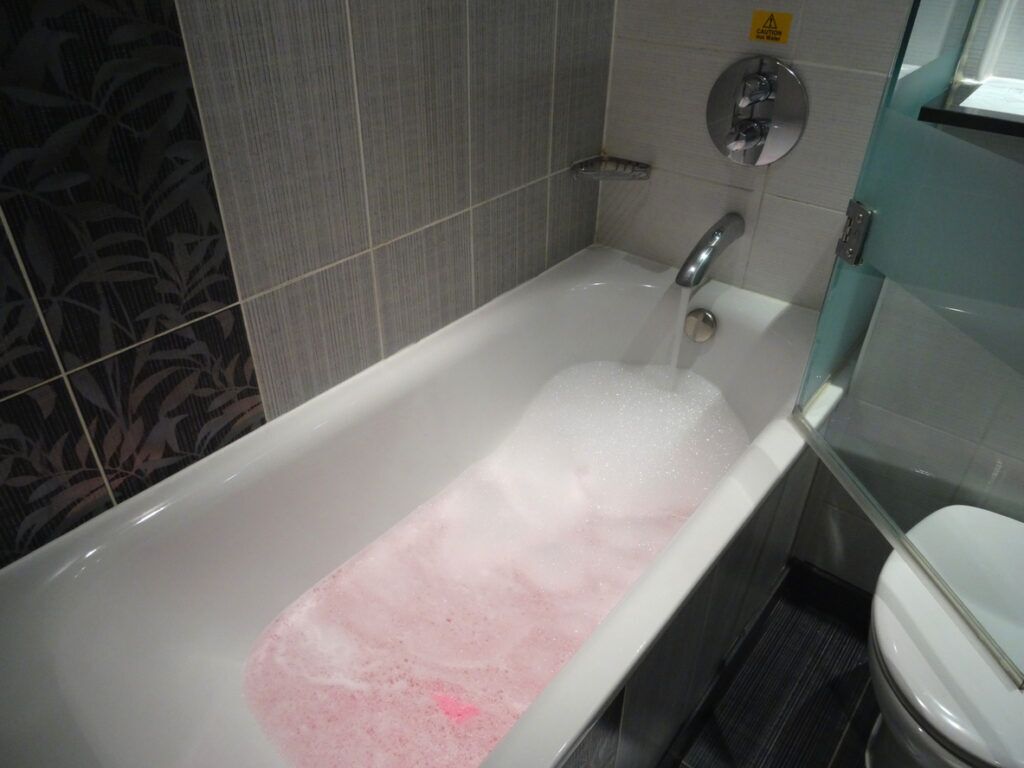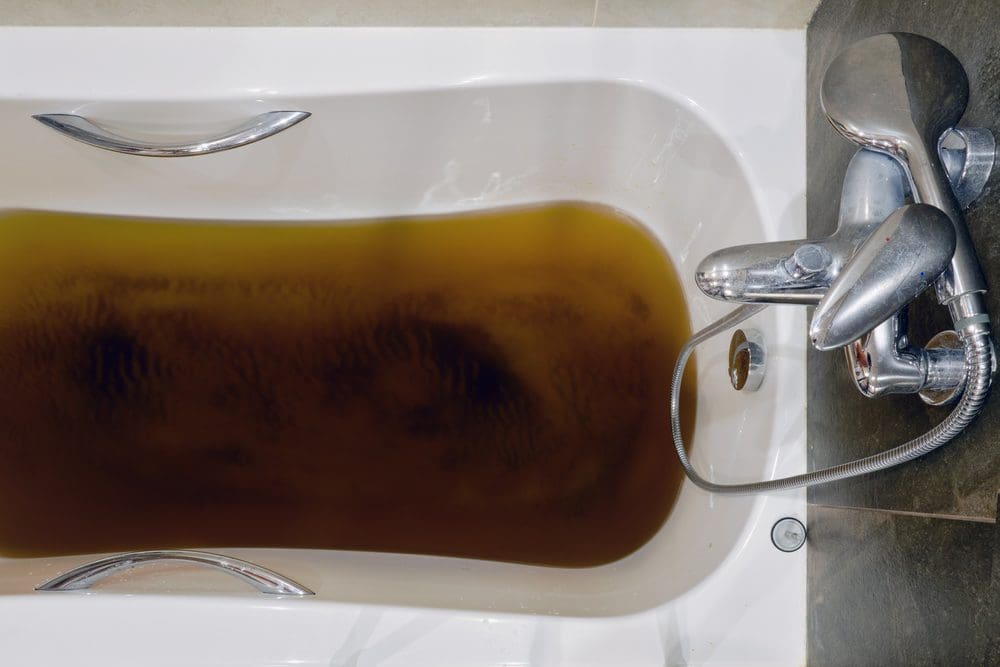Revealing the Causes of Discharge in the Bathtub
Revealing the Causes of Discharge in the Bathtub
Blog Article
What're your opinions about Why is There Sewage Coming Up Through the Bathtub?

Sewage back-up in the bathtub can be a traumatic and unsanitary trouble for any home owner. Not just is it inconvenient, yet it also postures major wellness risks and shows underlying issues with the plumbing system. Understanding why sewer is coming up through the bath tub is important for taking proper action to address the trouble properly.
Introduction to the Issue
Usual Reasons for Sewage Back-up
Clogs in the Sewer Line
One of one of the most common root causes of sewer backup is a blockage in the drain line. This can take place due to the buildup of debris, oil, or foreign things in the pipes, stopping correct flow and causing sewage to back up right into your bath tub.
Tree Origin Intrusion
Tree roots seeking wetness and nutrients can infiltrate sewer lines with little splits or joints. With time, these roots can grow and increase, creating significant damage to the pipes and resulting in sewage backup issues.
Understanding the Problem
When sewage starts backing up into the bathtub, it's a clear indication of an issue with the drainage system. The wastewater that ought to be moving away from your home is instead locating its way back right into your space, which can bring about substantial damages and carcinogen.
Possible Causes
Several factors can add to sewer back-up in the tub. From obstructions in the sewage system line to problems with the plumbing facilities, determining the root cause is vital for discovering a service.
Aging Facilities
Older homes may have outdated plumbing systems that are more susceptible to deterioration, fractures, and degeneration. As pipelines age, they end up being much more prone to leakages and obstructions, enhancing the likelihood of sewer backup events.
Heavy Rainfall or Flooding
Throughout periods of heavy rainfall or flooding, the drain system might become overloaded with excess water, creating back-ups and overflows. This can cause sewer supporting right into bath tubs and various other components inside the home.
Indicators of Sewer Back-up
Foul Odors
Unpleasant smells emanating from drains pipes or fixtures, specifically in the shower room, might suggest sewer backup problems. These odors are typically strong and relentless, signifying an issue that requires prompt interest.
Slow Draining Fixtures
Bath tubs, sinks, and bathrooms that drain gradually or otherwise in any way could be experiencing sewage backup. If several fixtures are affected simultaneously, it's most likely that the concern stems from an usual point, such as the main sewer line.
Gurgling Sounds
Odd gurgling or bubbling noises originating from drains pipes when water is running somewhere else in the house are indicative of air entraped in the plumbing system. This air accumulation can result from sewer back-up and ought to be investigated promptly.
Wellness Dangers Connected With Sewage Back-up
Contamination of Supply Of Water
Sewage back-up can contaminate the water supply in your house, positioning a serious wellness risk to you and your family members. Direct exposure to polluted water can lead to stomach problems, skin infections, and various other diseases.
Mold Growth
Wetness from sewer backup can develop optimal problems for mold growth in your house. Mold spores can aggravate respiratory troubles and trigger allergies in sensitive people, making punctual cleanup crucial.
Spread of Illness
Sewer includes dangerous bacteria, viruses, and bloodsuckers that can create a variety of conditions, including hepatitis, cholera, and gastroenteritis. Entering contact with sewer or contaminated surface areas puts you at risk of infection.
Cleaning Up After Sewage Backup
Disinfection Procedures
Extensively disinfect and sterilize influenced locations after sewage backup to get rid of unsafe bacteria and prevent mold growth. Use suitable cleaning products and protective gear to guarantee risk-free and efficient clean-up.
Reconstruction of Influenced Locations
Fix any kind of damages to flooring, walls, or fixtures triggered by sewage backup. Depending on the extent of the damages, you might require to change carpeting, drywall, or other materials to restore your home to its pre-loss condition.
Immediate Actions to Take
Shutting Off Supply Of Water
In the event of sewage backup, it's important to shut off the water system to avoid further contamination and damage. Situate the major water shutoff valve in your home and closed it off up until the problem can be fixed.
Getting In Touch With an Expert Plumber
Managing sewer backup is not a do it yourself work. Get in touch with a certified plumber with experience in handling sewage-related problems to assess the scenario and do needed repair work or cleanups.
Staying Clear Of Contact with Infected Water
Up until the sewage back-up is fixed, avoid contact with infected water to prevent the spread of germs and pathogens. Put on protective equipment if you need to be in the afflicted area and clean your hands thoroughly later.
Preventive Measures
Normal Maintenance of Sewage System Lines
Arrange normal evaluations and maintenance of your sewer lines to recognize and deal with potential problems prior to they rise right into significant problems. This can include cleaning particles, inspecting for tree root intrusion, and fixing any kind of damaged pipes.
Setting Up Bayou Shutoffs
Think about mounting backwater shutoffs in your plumbing system to avoid sewer from flowing back into your home throughout periods of heavy rainfall or flooding. These valves instantly close when water starts backing up, safeguarding your residential or commercial property from contamination.
Appropriate Disposal of House Waste
Avoid flushing anything apart from toilet paper and human waste down the bathroom to avoid blockages and obstructions in the sewage system line. Dispose of grease, oil, and other home chemicals effectively to minimize the threat of plumbing troubles.
Why Is Water Backing Up in My Bathtub When I Flush My Toilet?
What to do about a sewer line clog
First, don’t bother with plunging. No amount of plunging will dislodge the clog in a sewer line. The clog is too far away. Plungers are for clogs in the toilet itself, not the sewer line. Plus, the most likely causes of a sewer clog are:
Tree roots Flushed toys or feminine products Grease buildup Those items don’t move easily. And in the case of tree roots, the roots need to be cut out of the pipe and the pipe will need to be repaired.
You’ll need a closet auger. A closet auger is a type of plumber’s snake with a protective cover to keep from scratching the delicate porcelain toilet. If the clog is further down, you may need to remove the toilet or use one of your cleanouts to get to the clog.
We also recommend doing a video inspection of the drain to ensure that the cause of the clog has been completely removed. Otherwise, you could have the same problem again in a few days or weeks.
https://mspplumbingheatingair.com/blog/why-is-water-backing-up-in-my-bathtub-when-i-flush-my-toilet

I discovered that review about What to Do if Sewage Starts Coming Up Through Your Bathtub while doing research the search engines. Enjoyed our write up? Please share it. Let somebody else find it. Thanks for taking the time to read it.
Here
Report this page